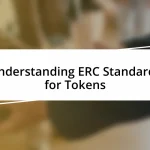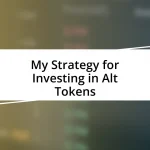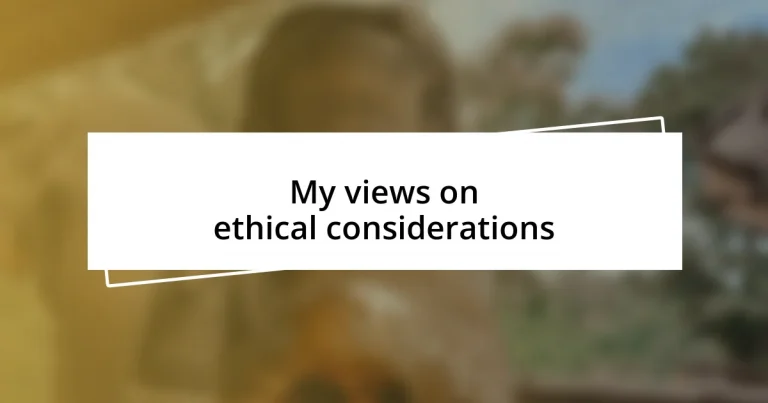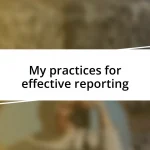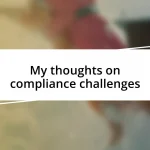Key takeaways:
- Ethical considerations are vital in decision-making, as they reflect personal values and cultural perspectives, requiring empathy and awareness of diverse viewpoints.
- Implementing ethical frameworks enhances accountability, fosters trust, and aids in constructive conflict resolution, impacting both workplace dynamics and community interactions.
- Evaluating the outcomes of ethical choices involves a deep reflection on potential consequences and aligning decisions with core values, promoting a culture of integrity and respect.
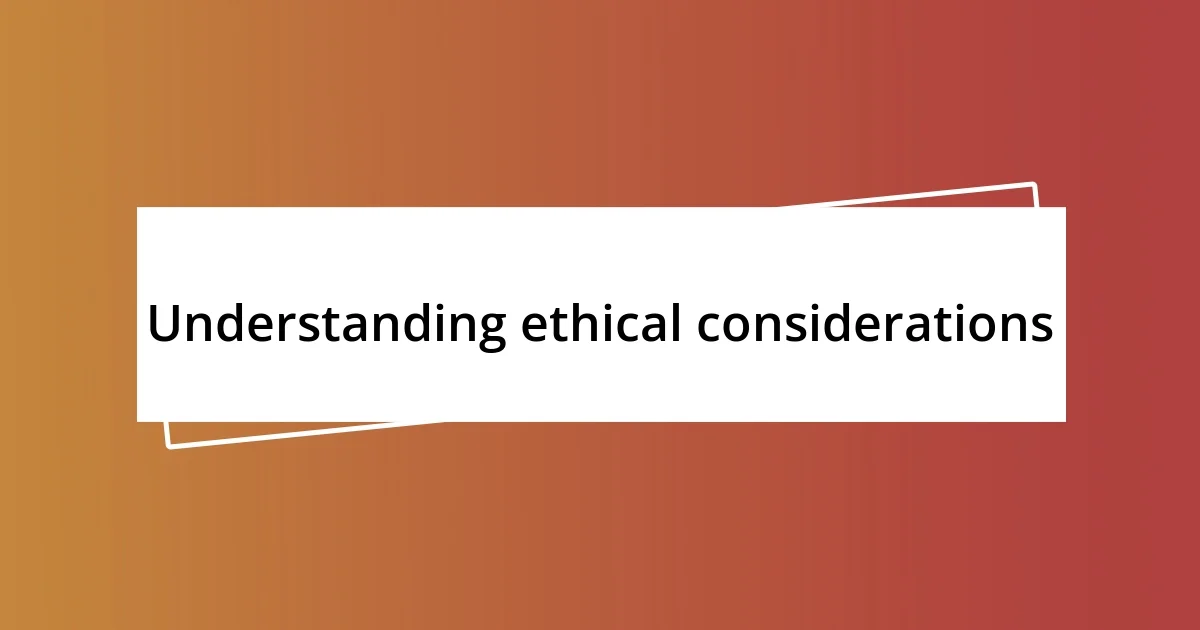
Understanding ethical considerations
Ethical considerations are the backbone of our decision-making processes, influencing how we navigate complex situations. I remember a time when I found myself faced with a dilemma at work, where the right choice wasn’t immediately clear. It made me question not just what was legal, but what felt morally right.
When we think about ethics, I often find myself asking, “What do I believe in, and how does it align with my actions?” This reflection goes beyond a checklist of rules; it taps into our values and the impact our choices have on others. For instance, I’ve been in discussions where weighing the pros and cons of a decision revealed deeper truths about my own biases and assumptions.
It’s also vital to recognize that ethical considerations can vary greatly from one culture to another. As I’ve traveled and interacted with diverse communities, I’ve seen how practices deemed acceptable in one place can be viewed as unethical in another. This realization pushed me to adopt a more empathetic perspective, understanding that my viewpoint is just one of many.
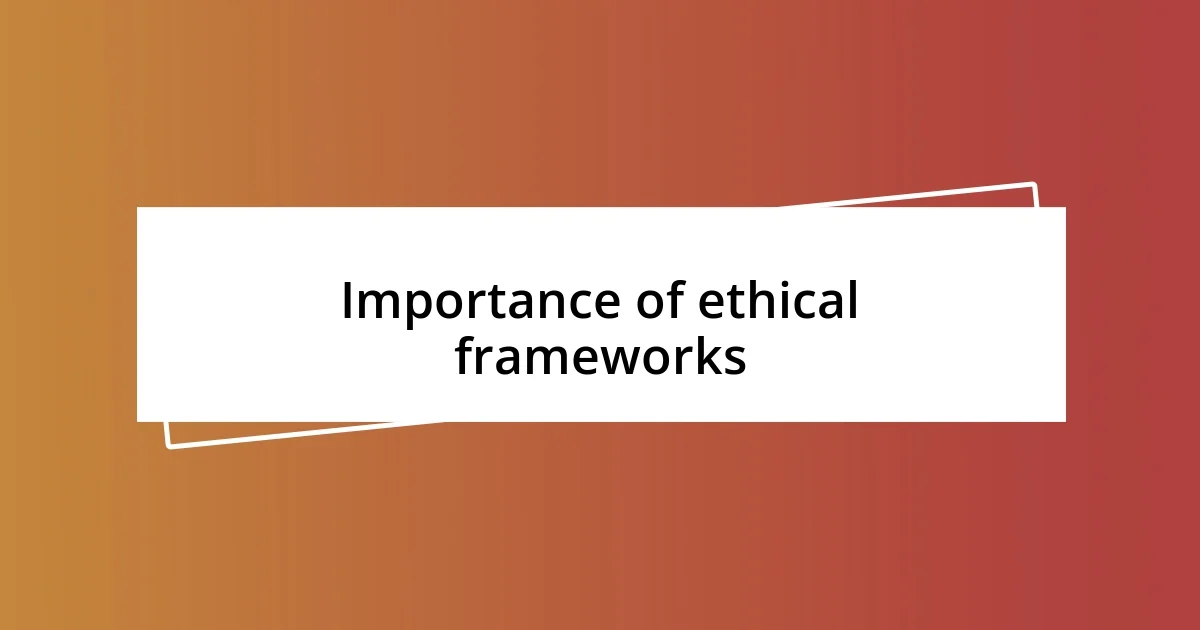
Importance of ethical frameworks
Ethical frameworks provide the essential guidelines that shape our decisions, ensuring that we remain accountable for our actions. I remember my first encounter with a formal ethical guideline during a corporate training session. It was eye-opening to see how clearly defined principles can steer a group towards a common vision while minimizing misunderstandings. This unity not only enhances trust among colleagues but also fosters a culture of integrity that can resonate throughout the entire organization.
Another vital aspect of these frameworks is their role in conflict resolution. During a challenging project, I found myself caught in a disagreement with a teammate over priorities. By referencing our ethical framework, we were able to navigate our differences constructively, reminding us of our shared values and objectives. It’s intriguing how having that structure allowed us to focus on collaboration rather than conflict, ultimately leading to a more successful outcome.
The impact of ethical frameworks extends beyond the workplace as well. I witnessed this firsthand when collaborating on a community project involving sensitive issues. Our commitment to ethical guidelines helped us approach participants with respect and transparency, creating a safe space for dialogue. This experience drove home the importance of maintaining ethical standards not just in business, but in all aspects of our lives, shaping the way we interact with others in meaningful, respectful ways.
| Importance of Ethical Frameworks | Benefits |
|---|---|
| Guidance in Decision-Making | Ensures accountability and clarity in choices. |
| Cultivating Trust | Fosters a culture of integrity within teams. |
| Conflict Resolution | Helps navigate disagreements constructively. |
| Broader Social Impact | Shapes respectful interactions in communities. |
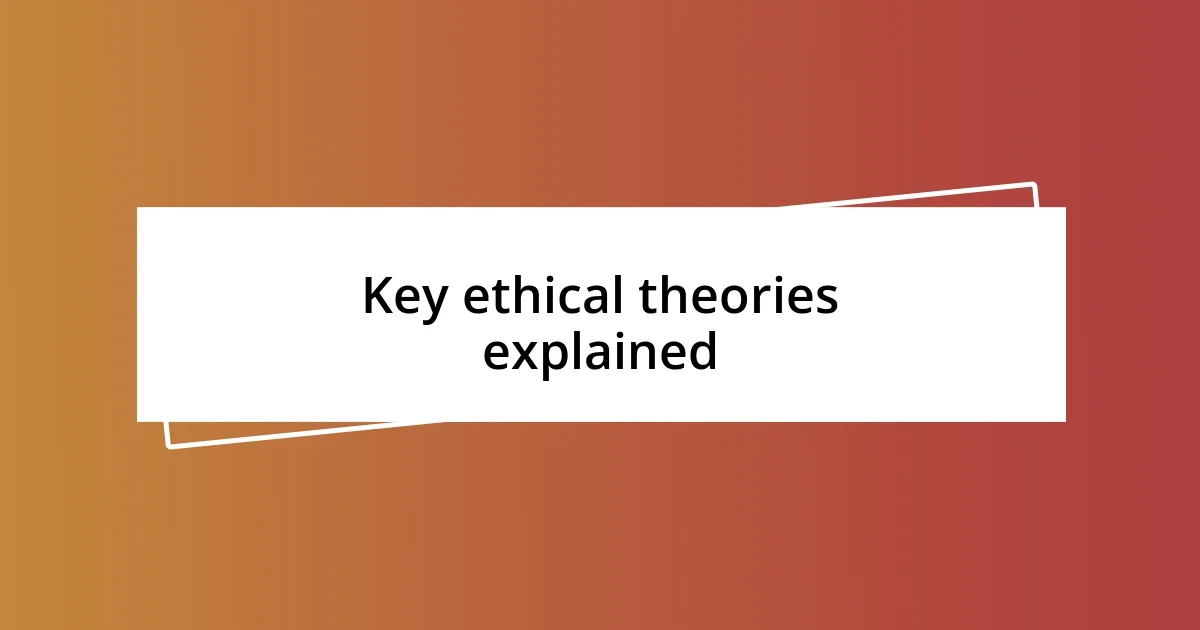
Key ethical theories explained
Key Ethical Theories Explained
When I delve into ethical theories, I often find myself reflecting on how they shape our understanding of right and wrong. For instance, utilitarianism emphasizes the greatest good for the greatest number. I remember grappling with this theory during a group project where we had to weigh the benefits of a proposal against its potential drawbacks for minority stakeholders. It opened my eyes to the challenge of balancing the collective benefits with the needs of individuals.
Here are some key ethical theories that serve as lenses through which we interpret moral dilemmas:
– Utilitarianism: The idea that actions are right if they promote overall happiness.
– Deontology: This theory focuses on rules and duties, asserting that actions must adhere to set principles regardless of consequences.
– Virtue Ethics: Here, the emphasis is on the character of the individual rather than specific actions, asking, “What kind of person do I want to be?”
– Care Ethics: It highlights the significance of interpersonal relationships and care as fundamental to ethical behavior.
– Social Contract Theory: This theory posits that moral principles are based on agreements among individuals for mutual benefit.
Every time I explore these theories, I find myself reassessing my own beliefs and what they mean in practice, especially in complex scenarios that demand more than just a simple yes or no answer.
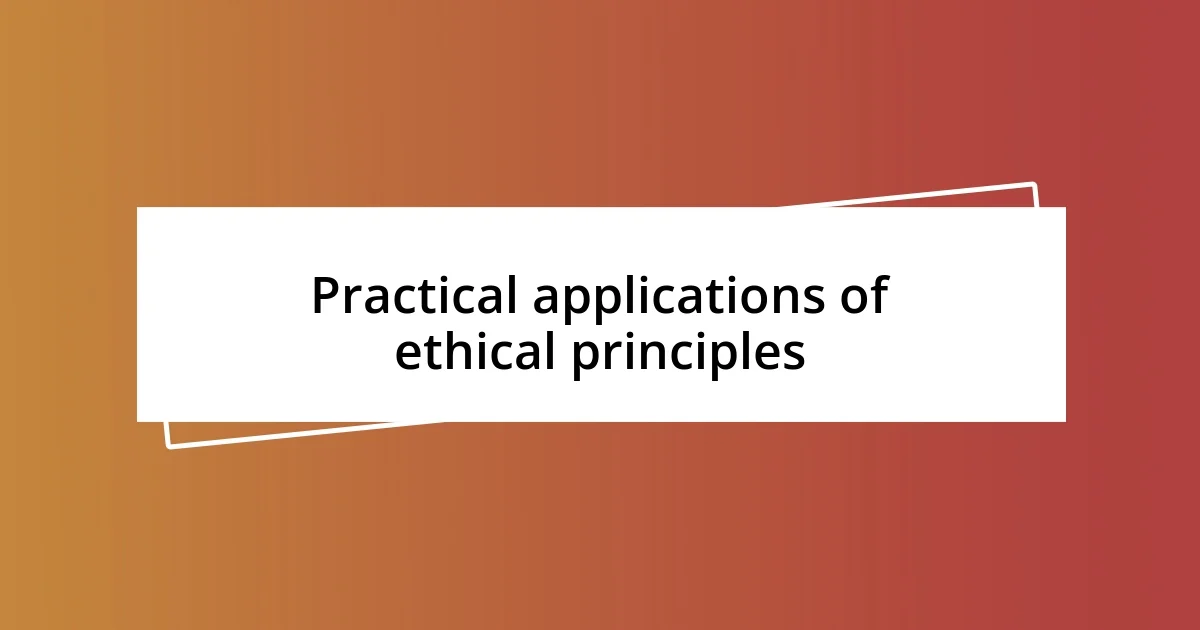
Practical applications of ethical principles
One practical application of ethical principles is in decision-making processes across various industries. For example, I once worked on a product development team where we had to consider environmental impacts in our design choices. By consciously applying sustainable principles, we not only met regulatory requirements but also crafted a product that resonated with environmentally conscious consumers. Isn’t it fascinating how a simple shift in perspective can lead to innovations that benefit both business and the planet?
Another area where ethical principles come into play is in customer interactions. I vividly remember handling a situation where a customer expressed frustration over a product. Instead of viewing the interaction as a mere transaction, I leaned on the principle of empathy, aiming to understand their feelings. By doing so, I transformed a potential conflict into an opportunity to build trust, turning a dissatisfied customer into a loyal advocate. This experience taught me that applying ethical frameworks can deepen relationships and enhance customer satisfaction.
In the realm of community engagement, I’ve organized events that champion social responsibility. During one such event, we embraced inclusive practices by seeking input from underrepresented voices in the community. It was humbling to witness how aligning our efforts with ethical standards allowed us to create a space where everyone felt valued. This reinforced my belief that the essence of ethical practice is rooted in recognizing the dignity of individuals and fostering a sense of belonging, which is ultimately beneficial for everyone involved.
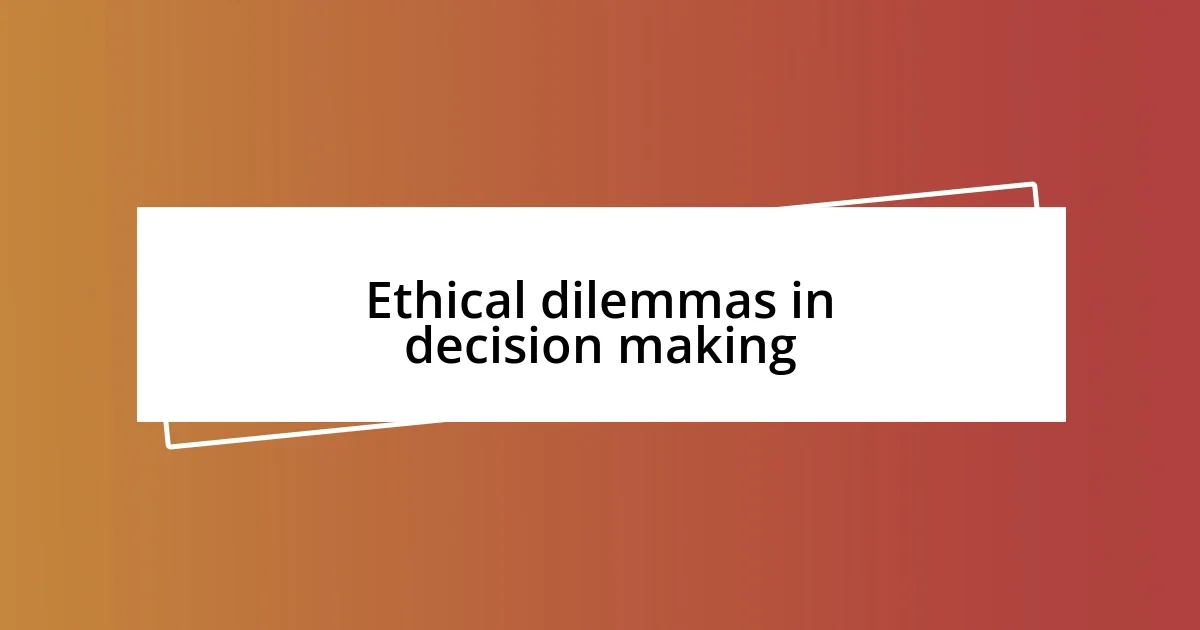
Ethical dilemmas in decision making
Ethical dilemmas often arise in decision-making when personal values conflict with professional obligations. I faced this firsthand during a project that involved laying off employees due to budget cuts. I remember sitting in meetings where we debated the necessity of these layoffs, all while knowing the profound impact it would have on families. The weight of this decision was heavy, reminding me of the human lives behind numbers.
In another instance, I found myself navigating a situation where an opportunity for advancement clashed with the ethical treatment of a colleague. I had to ask myself: Was it worth compromising my integrity to get ahead? Ultimately, I chose to support my teammate, reinforcing my belief that fostering trust and collaboration is far more important than personal gain. These experiences illustrate how decision-making isn’t just about the choices we make, but the values we uphold in those moments.
It’s interesting how ethical dilemmas can reveal our true character—they challenge us to think deeply about what kind of person we aspire to be. When faced with moral quandaries, I often reflect on the legacies I want to leave behind, which are rooted in fairness and compassion. How do we want others to remember us when they’re faced with their own decisions? It’s a question that keeps me grounded, guiding my actions even in the toughest of choices.
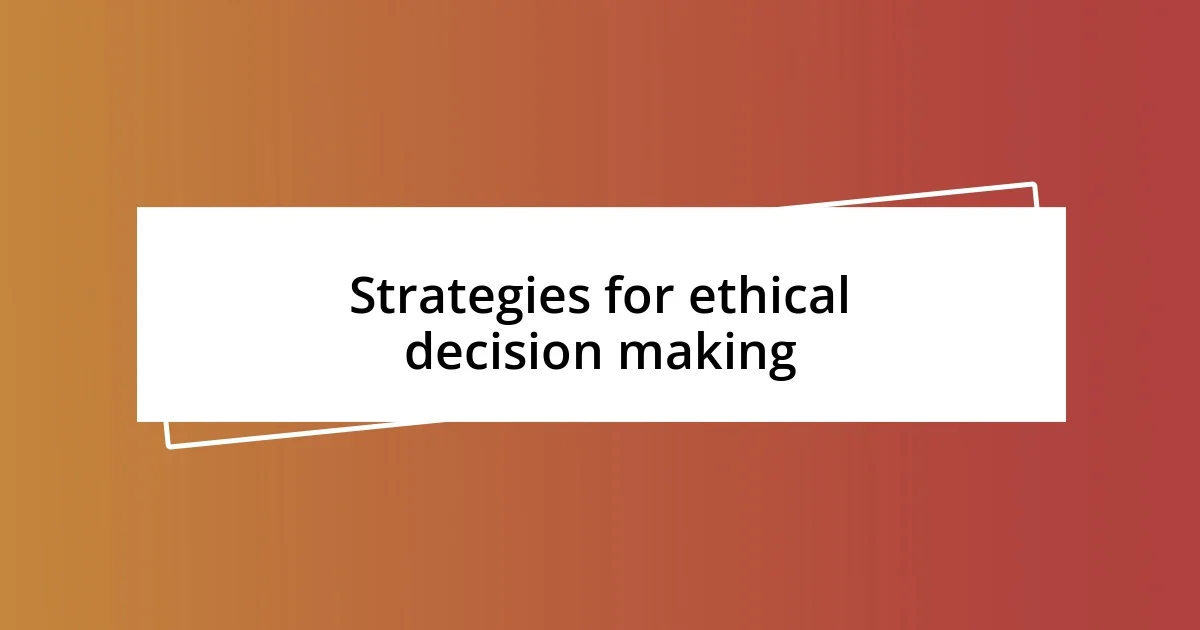
Strategies for ethical decision making
When making ethical decisions, I find it incredibly valuable to employ a systematic approach. For instance, I once faced a decision about partnering with a vendor whose practices raised some red flags for me. By creating a pros and cons list, considering the potential impacts on all stakeholders, I was able to clarify my thoughts. It’s amazing how writing things down can reveal not just the facts, but also the emotions tied to each option we face. Have you ever tried such a strategy?
Another effective strategy involves seeking input from others. In one situation, I encountered a tough call regarding a marketing campaign that teetered on the edge of manipulative messaging. I decided to consult my colleagues, and their diverse perspectives opened my eyes to potential hidden biases. Engaging in dialogue allowed me to refine our approach, ensuring it was not just effective but also ethically sound. I’ve learned that collaboration often results in richer, more ethical outcomes.
Finally, I always remind myself to pause and reflect before jumping into action. There have been times when my gut reaction led me astray, like the time I almost went along with a trend that contradicted my values. Allowing myself the time to consider the broader implications helped me realign with my core beliefs. In moments of haste, will you remember to hit pause and reflect on what truly matters? It’s often that brief moment of contemplation that ensures we make decisions we can stand behind with pride.
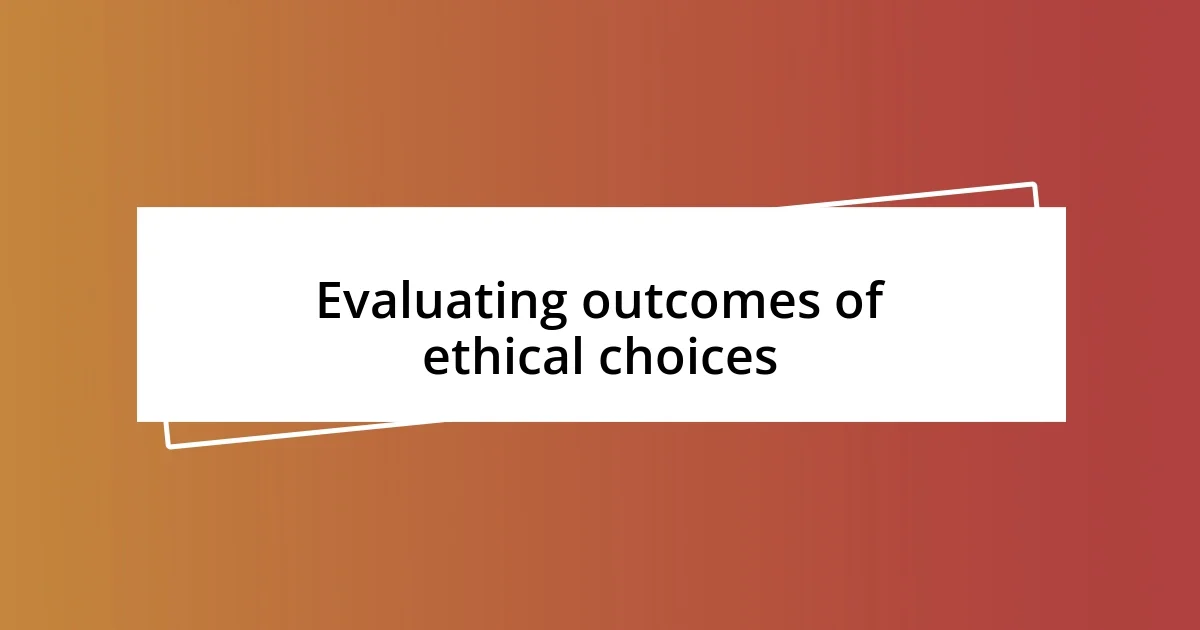
Evaluating outcomes of ethical choices
Evaluating the outcomes of ethical choices is a complex yet crucial endeavor. Reflecting on a decision I made about supporting a community initiative, I initially focused on the good it would bring to the local environment. However, after discussions with community members, I realized the unanticipated financial strain it placed on small businesses. This epiphany showed me that every choice can have ripple effects that extend far beyond our intentions.
In my experience, I’ve learned that weighing the outcomes often involves looking beyond the surface. For instance, during a project where I had to decide between a cost-cutting measure and upholding employee benefits, I felt a pang of uncertainty. After considering the long-term morale and productivity drops that could arise from cutting benefits, I opted for a more balanced solution. This taught me that the immediate benefits of a decision can sometimes cloud the potential fallout on collective well-being.
So, how do you assess whether your ethical choice yields the right outcome? I often find myself journaling my thought process. Recently, I wrote down the expected outcomes and potential consequences of a new policy at work. Reviewing my entries, I could see the emotional and ethical dimensions clearly, allowing me to align my decision with my values. The clarity it provided was comforting, reaffirming the importance of evaluating not just what we choose, but how it impacts everyone involved.


